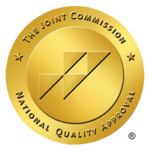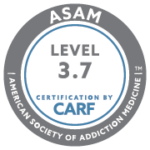When you’re abusing substances of any kind, coming clean to your family about your addiction can be difficult. There are steps you can take to make this process as easy as possible for you and the people you love.
Prepare Yourself to Talk to Your Family
The first step is to prepare yourself. You know your family best; will your family feel supportive, angry, frustrated, confrontational, or want to take action? Consider how each member of your family may react to your confession. The person or people you would want to discuss your situation with first may be someone like a sister or brother who you know will always be supportive of you; or, if your mom or dad is more accepting of when you struggle in your life, consider talking to them first.
Once you decide who you want to talk to, remember not to overthink it. While this is a major concern in your life at the moment, much of the concern you have will dissipate once your secret is out in the open. Once you tell others about the issues you struggle with, you can begin taking on the problem as a team, and that’s the kind of support you need while you seek addiction treatment.
Prepare yourself with information. What substances are you abusing? What kinds of treatments are there? If you go into the conversation with suggestions on how to live healthier, you’ll be ahead of the game.
Be Honest
The last thing anyone wants to hear from you is a half-truth or lies. Being honest about your addiction and how it affects you is important. Did you only realize you were struggling with alcoholism recently? Were you skipping classes to smoke weed or get high? Be honest about how your addiction is affecting you and why you want to change your ways. Focus on the positive; you understand that you have a problem, and you want to fix it.
Be Concise
While you may feel the urge to tell your family about everything that has happened to you while you’ve struggled with addiction, the mere realization that you’ve been struggling can be a difficult blow for some. It’s best to keep your initial interactions calm and concise; you can say you’re struggling with an addiction and want to get help with recovery and need support. You can explain why you are in the hospital for drug addiction or alcohol abuse; you can even tell your family what you take and why. There are some fine details that may be left for later since the initial conversation will be a lot for your family to take in.
Of course, if your family is receptive and wants to know more about what you’ve been struggling with, then telling them what they want to know is fine. Just be considerate; if they are taking the news hard, you may want to work through getting involved in a recovery program before your continue your conversations about what has happened to you in the past.
Be Prepared for Their Reactions
Being prepared for the reactions of your family can be difficult, particularly if you don’t know what to expect from them. Practicing acceptance will help you with any potential negative reaction. Here are a few scenarios that can help you better prepare yourself.
- Your family could be supportive but want more information than you’re ready to provide. Remember, they’re trying to help, and try to be courteous.
- Your family could be angry or feel used. This happens often when the person abusing drugs or alcohol has mistreated family members during the addiction. Allow your family member to get out those feelings, but it’s okay to leave the room or home if you feel they are being abusive. It’s important to listen to their side of the story, but getting help and moving forward needs to be your goal.
- They could be eager to help. Maybe your family begins pulling up dozens of options, calling the local rehab facilities, or want to take immediate action. They’re trying to be supportive, so prepare yourself to accept this help.
Consider Your Options for Treatment
Whatever happens with your family’s reactions, it’s important that you seek out the help you need for drug or alcohol abuse. You can pull up some facilities you may be interested in being part of or look up the programs you’re most interested in before you speak to your family. Showing your family that you have taken the time to think about your actions and how to move forward can be a great first stepping stone to healing.
To learn more about the programs that are located near you or that offer the services you require, visit www.firststepsrecovery.com online. If you want to get in touch with a facility or learn more about programs and the types of addictions they handle, you can call our helpful specialists at 1-844-489-0836. They’ll have more information about a variety of topics and rehabilitation facilities near you.









